Use your words to conjure the more beautiful world your heart knows is possible.
Her name was Brooke. It had been a name chosen carefully for her by her father, so when she read that the word “brook” was being struck from the dictionary, along with a host of other words “redundantly” featuring nature, it felt personal. The fact that it was the Oxford Junior Dictionary, and the words were being plutoed (downgraded in status, like a certain former planet) to make room for attachment, cut and paste, chatroom, database and MP3 player, made it political, too.
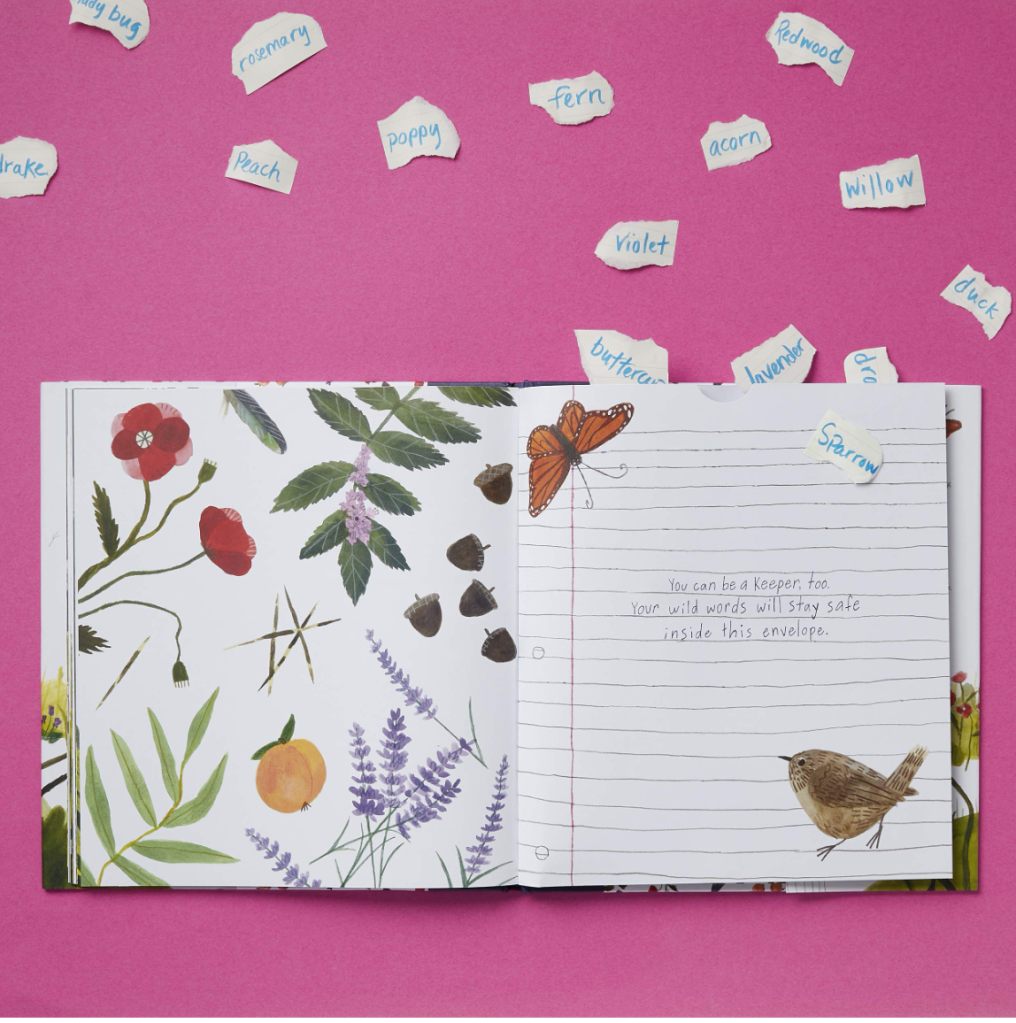
So Brooke Smith did what she knows best – after crying and ranting and stomping her feet and going for a lot of long walks on her Bend, Oregon property. She wrote a picture book – every page, a combined act of love and protest, reaffirming the necessity of these words – brook, dandelion, monarch, lavender. Notably, neither “chatroom” nor “database” made an appearance in the text for The Keeper of Wild Words, but setting the story as a kind of scavenger hunt in her grandmother’s garden ensured plenty of nature medicine. The Keeper of Wild Words came out March 10, 2020, officially a terrible time to launch a new book into the world, and yet, it arrived at a time when the medicine of time spent in nature was quietly underscored to a world in sudden lockdown.
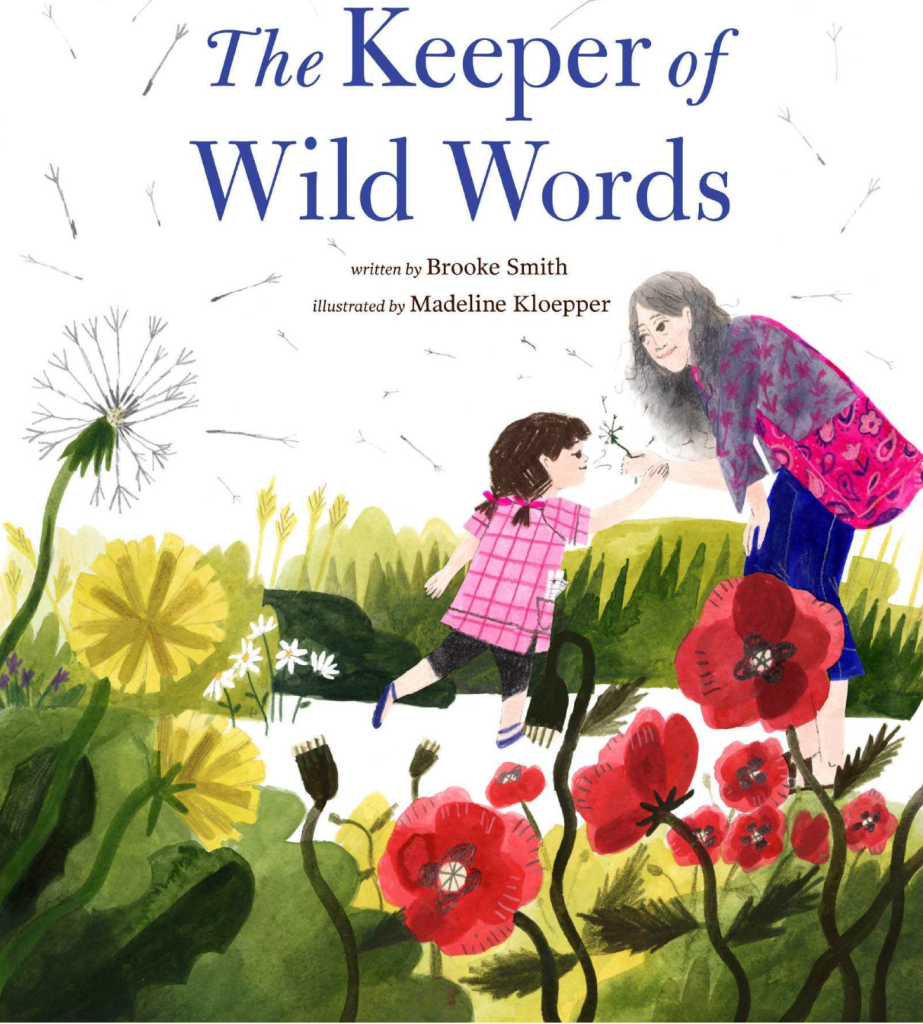
Brooke Smith was not the only person use her words to protest the undervaluing of the connection between humans and the natural world. In 2015, 28 authors and artists, including Margaret Atwood, wrote a protest letter to the Oxford University Press, asking them to consider reinstating the wild words. The Press declined, citing page counts, priorities, frequency of use. The words were being culled because no one was using them anymore.
Welsh artist Jackie Morris was one of the signatories of the letter, and she couldn’t let it rest. So she took a different approach to protest. She partnered with Robert Macfarlane, who had just written a book, Landmarks,exploring the relationship between nature and language, to create another kind of picture book.
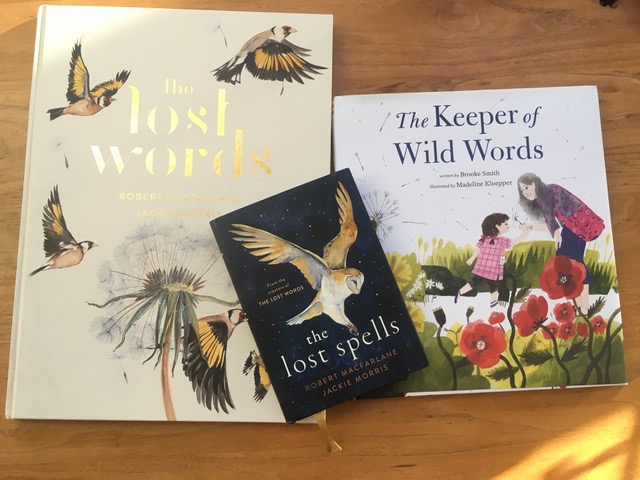
The Lost Words is a huge format book, one McFarlane jokes is big enough to “use as a rain shelter or a coffee table” – and was conceived as a “spell book” to conjure back twenty of the lost words, that had been excised from the dictionary. Morris would learn the poems or spells McFarlane wrote, by heart, to paint them. She said, “A book of poetry is hard and intimidating to read for someone like me, who has dyslexia… but giving words space is much more inviting.”
Through the magic of word and paint, and the invitation to speak the words aloud, the pair sought to summon those words back into being.
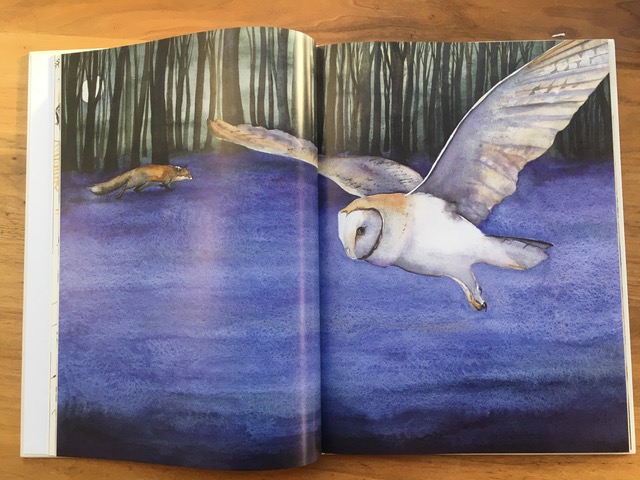
They weren’t protesting against the dictionary. They were protesting loss, and their artful approach sparked an unexpected torrent of support – a crowdfunding campaign was started to put a copy of the book in every primary school across the country. Musicians gathered to turn it into an album. It inspired a symphony. The artworks were painted on hospital walls. It became a huge bestseller, a cultural phenomenon.
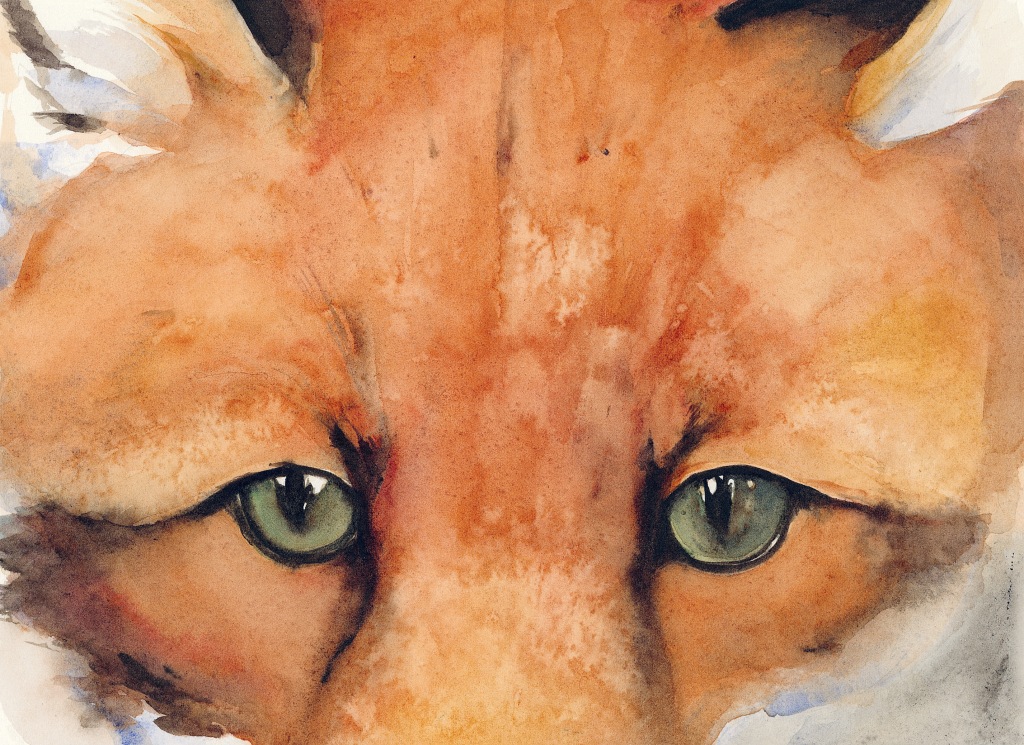
In October, its sequel The Lost Spells was published, to “continue the conversation, continue the enchantment,” and continue flexing into a form of environmental protest that is less about shouting, crying or doing without, and more about making, singing, dancing, and invoking joy.
It, too, has tapped into a hunger to respond to the losses of our times with something more than feeble rage. As McFarlane writes, “Loss is the tune of our age, hard to miss and hard to bear. Creatures, places and words disappear, day after day, year on year. But there has always been singing in dark times – and wonder is needed now more than ever. ‘To enchant’ means both to make magic and to sing out. So let these spells ring far and wide; speak their words and see their art, let the wild world into your eyes, your voice, your heart.”
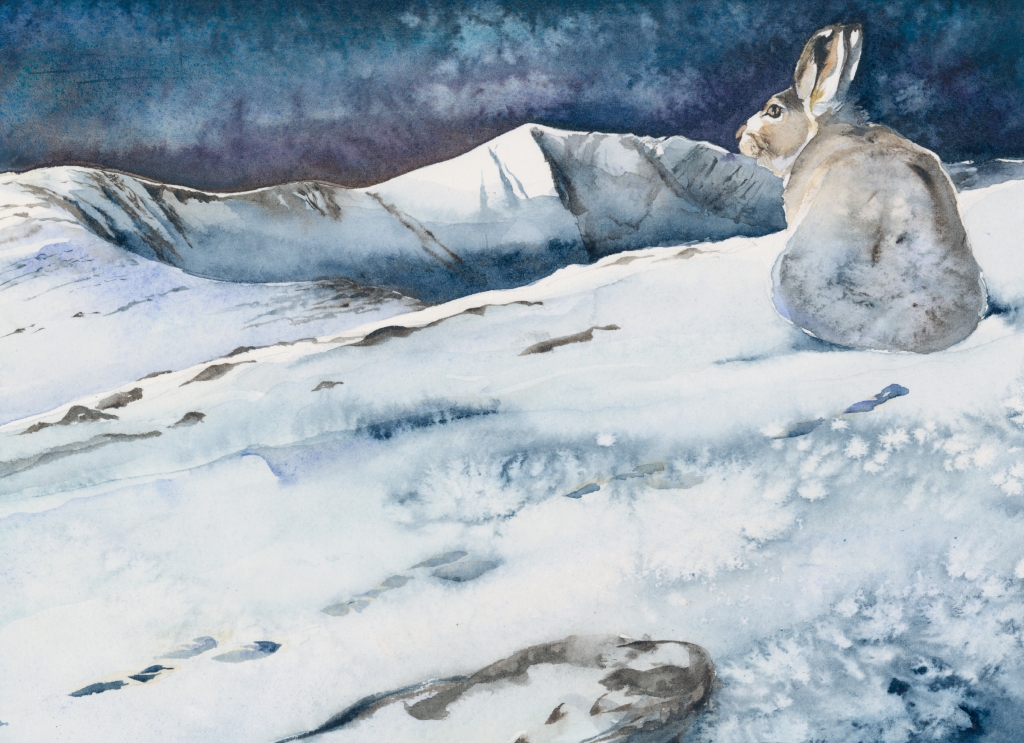
In this gesture of craftivism, people are invited to share the space of loss, by appreciating the way loss and grief and befuddlement can be spun into creative offerings, beautifully rendered. Craftivism is a kind of anathema to slacktivism, which is the more common path of protest these days – yelling loudly into Facebook to try and effect change. Craftivism, is quieter and gentler, it generates art and artefacts, and is about creating a better world, note by note, stitch by stitch. It’s about putting something into the world that is more than just your rage or your despair – something that people can approach with curiosity, and engage with.
The intention behind these books compelled me. But it’s their reception that has made me pay attention. You’d think it would be obvious that a writer would believe in the magic of words… but this past year has woken me up to the idea that I actually need magic, I need to believe in magic, I need to believe with my entire body that the way we shape words and sentences and the energy and emotion and intention we align behind them, actually has a potency, and can impact the world. Playing with words is not just an indulgence. It’s not just a nice little past-time. It’s not just of value if you have a corporate client paying for it. It can energize those things when you greet a violet or a cedar or a snowfall by name, by words spoken aloud. It can give them pleasure, maybe, or an immune boost.
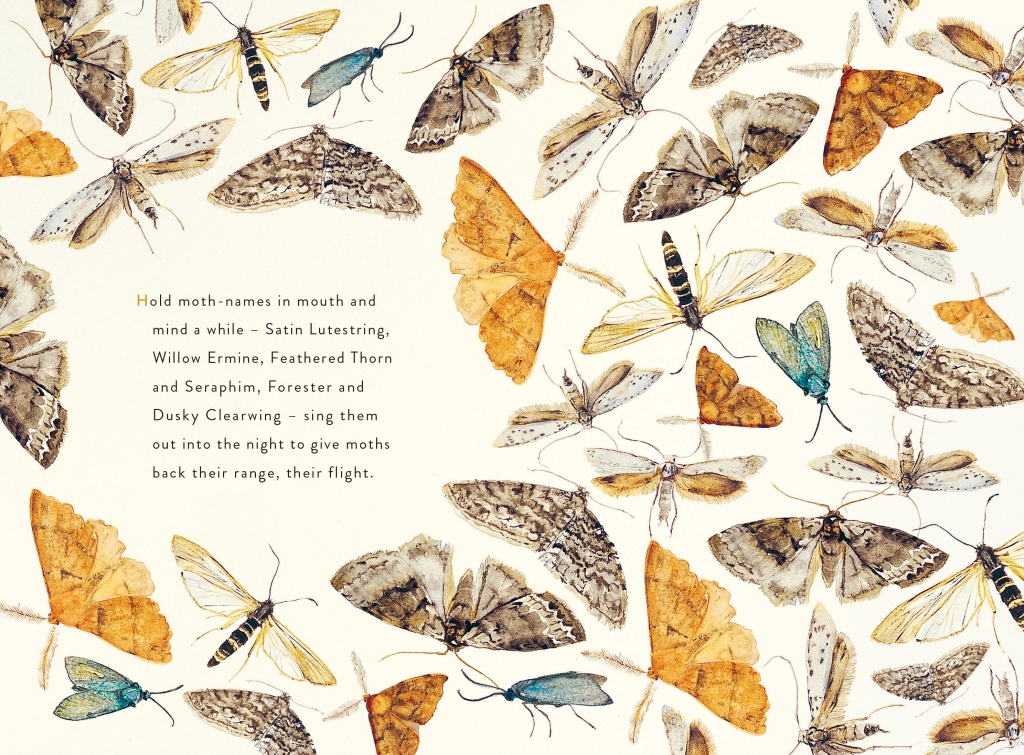
Creative offerings can bring people together. And that – people coming together – is what can change the world.
I think a lot of us went into 2021 with this singular spell on our tongues: “Fuck you, 2020.” And that has maybe whipped back around and slapped us in our faces. Maybe we need a do-over.
What “spell” might we cast for 2021, just these few weeks into it? After we stomp our feet and yell and cry and lament the unfairness, the loss, the stupidity… what might we want to call into being? What might we conjure forth? What might we urge into existence, with a prayer, a spell, a song, a poem? What might we save or protect? Just say it. Out loud.
Thank you. I’ve not opened a book now in 7 months. It’s good that you send me these. My patterns are broken and I focus in trying to figure what I can believe when I read the news. So I need this. With love Bob
Sent from my iPad
>
When you’re reading for a reading list, I can help! Have definitely taken refuge in some great reads over the past year. And some great podcasts. Old patterns and habits have al been disrupted, I hear you on that. It’s hard, that feeling of befuddlement and being out of balance. I keep trying to cultivate the sense that this is an opportunity… and nothing heroic needs to happen… just small steps often, small shifts that will grow into new patterns… Thanks for reading. And commenting. And sending love.